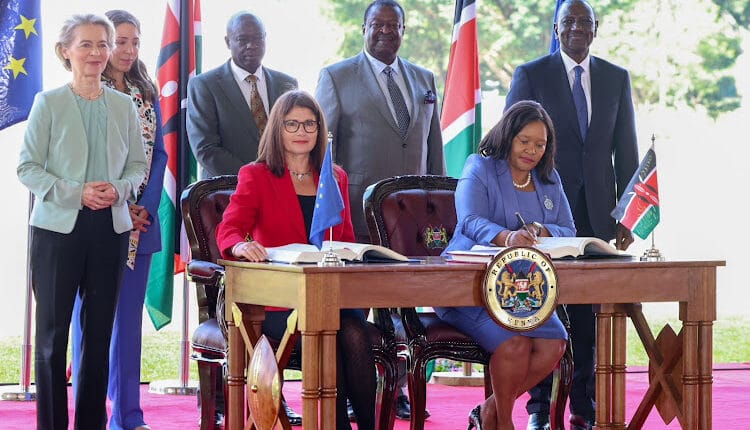By Antynet Ford
The European parliament has made Kenya the first developing country to sign a progressive trade deal opening the debate on BREXIT.
The Parliament voted on Thursday, February 29, 2024 to approve a landmark trade agreement.
This is a major milestone bringing the East African economic hub closer to the EU’s massive single market.
The Economic Partnership Agreement (EPA) aims to eliminate trade barriers and strengthen economic ties between the two partners.
“This agreement is a catalyst for economic growth, job creation and sustainable development.” Alessandra Mussolini, said.
EPA provides duty-free access to the EU for all of Kenya’s exports and in return, Kenya will gradually open its market to EU imports.
The agreement also includes binding rules on labor, gender equality, climate and the environment. Mussolini called them “new compared to the EU-East African Community EPA.” Violations can be addressed through a dispute resolution mechanism.
Last year, the Total trade between the sides was €3.3 billion.
“By promoting trade and investment, the EPA contributes to economic growth and development in Kenya.” Mussolini said.
Increased exports and investments flowing from the deal are expected to create new jobs and improve living standards. The EU is already Kenya’s second largest trading partner after China, absorbing 27 percent of its exports.
Kenya mainly ships vegetables, fruits and cut flowers to the EU. Imports heading the other direction include machinery, chemicals and mineral products.
The deal only needs formal approval from the EU Council to complete ratification by the bloc. Kenya has already ratified the EPA, which was originally negotiated with the entire East African Community (EAC) in 2014.
For now, Kenya has moved ahead solo after securing EAC approval last year.
Thursday’s vote was a resounding 366 in favor, 86 against and 56 abstentions. The lopsided result demonstrates strong support among Members of the European Parliament.
The EU-Kenya EPA reflects the bloc’s increasingly high standards on labor, sustainability and the environment in its trade agreements. The deal comes as the EU seeks closer ties with Africa in the face of competition from China.



